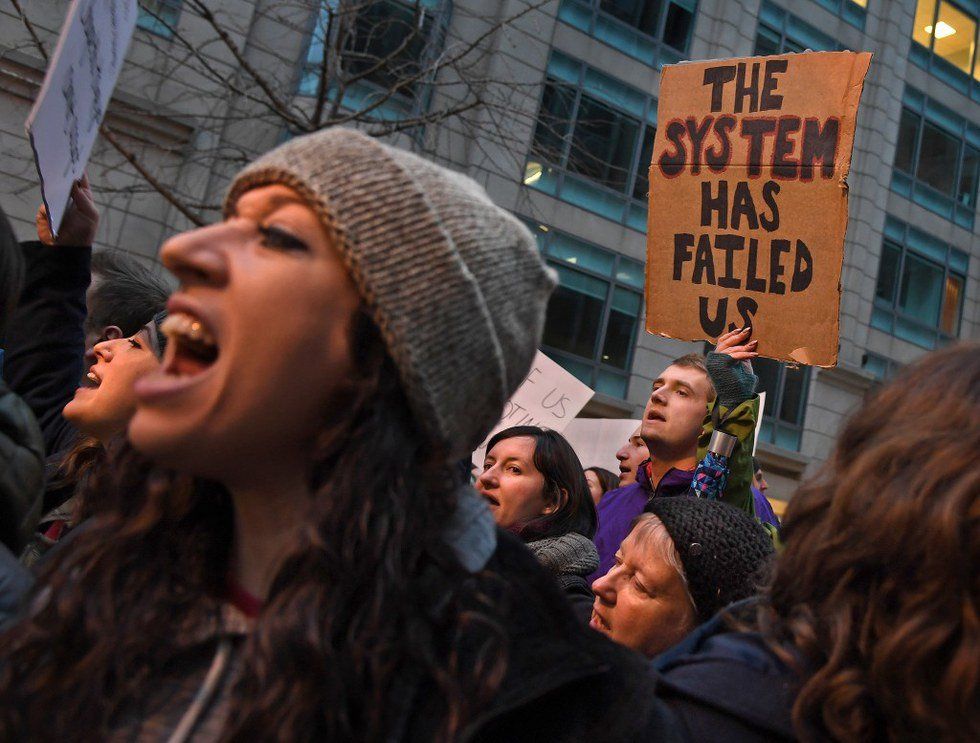The best way to take the pulse of a particular time period is to study the music of that era. The music reveals the hopes that people were keen to express and the fears they were desperate to soothe. Occasionally, there emerges from this soup of timeliness something that becomes timeless. Whether it manages this through songwriting genius or lyrical cynicism, these few songs remain as relevant in one era as another.
One song that manages this is 60’s protest number “Eve of Destruction.” Admittedly much of the old 60’s protest music is still just as relevant today as when it was written, but “Eve” has a special quality to it that puts it above and beyond the average protest song.
“Eve of Destruction” was written one night in 1964 by songwriter P.F Sloan during a sudden epiphany. A few artists covered the song, but the most popular and powerful rendition came in the summer of 1965 from singer Barry McGuire. The song was conceived as a reaction to the various political and social forces battering the country at the time; the escalating war in Vietnam, the continued fears of nuclear annihilation, the grief over the death of Kennedy, and the increasing racial tensions of the civil rights movement. Where the song really comes into its own is in its bleakness and desperation as it rages against the hypocrisy and violence that seem to be consuming society.
It’s by digging into the lyrics we find the song goes from 60s time capsule to modern social commentary. Today, as in the 60s, we find ourselves embroiled in unwinnable foreign wars, beset by racial tensions, and led by hypocritical and violent leaders. The anger and resentment of the song captured this mood at the time and serves to help us express it in ours.
The opening lyrics reflect with the specter of violence consuming the world “The eastern world, it is explodin’/ violence flarin’, bullets loadin’”. In its day it was talking about the Vietnam War. Today we have ISIS and the Middle East its personal hell, a president declaring a brutal war on drugs in the Philippines, China flexing its military muscles over a bunch of small islands, and terrorist militias launching attacks from Turkey to Indonesia. As the song says “Take a look around you, boy, it's bound to scare you, boy” and scare us it does. For a country where the most religious demographic voted overwhelmingly for a man who ran a campaign of hate, “hate your next-door-neighbor, but don't forget to say grace” takes on a new meaning.
The song then goes on to give its summary of the mood of the American nation which is just as contentious now as it was then, “Yeah, my blood's so mad, feels like coagulatin’/I'm sittin' here, just contemplating.” Then it proceeds to go into why the anger of the public has been inflamed which in the wake of Trump seems even more fitting for the here and now, “When human respect is disintegratin'/This whole crazy world is just too frustratin'.”
Buried within this song, amid so many powerful lines, is one of the most chilling lyrics ever put to music. “If the button is pushed, there's no running away/There'll be no one to save with the world in a grave,” In a world where the specter of nuclear annihilation has faded from the public consciousness but is no less relevant, and the awesome force that is climate change continues to haunt us we should all take care to pause and reflect on squabbles that we prattle on about and see if they match up against these calamities that promise to leave no one alive. If that fails to unnerve you, then consider what having a president who seems more than willing to push the proverbial button means.
Of course some of the lyrics of this song are rather dated. One of its central criticisms, that young people can go die for their country but can’t vote, has been rectified by constitutional amendment and the draft has been defunct for decades. Other parts are dated in the references, but not in the underlying themes. If you take, “Think of all the hate there is in Red China!/Then take a look around to Selma, Alabama!” and change Red China to any number of possible countries (i.e. Russia, North Korea, Syria, etc.) and change Selma, Alabama to Ferguson, Missouri the song maintains the same impact.
Beyond the lyrics though perhaps the most enduring thing about this song is the anger and despair that it conveys. It’s a reaction to a world that seems to be falling apart and in today’s nightmare of Trumplandia this reaction is not unjustified. Here we are thrust in the maelstrom of world events where we are forced to make tough choices, to face the pride and disgrace that mark our lives. We must overcome this world gone mad or else we really will be on the eve of destruction.
Here’s the song to listen for yourself:





















